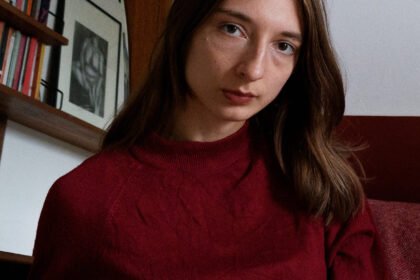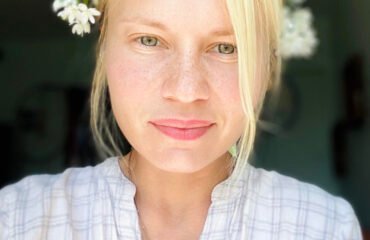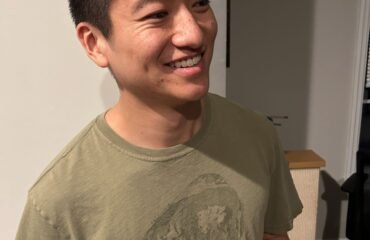
Taos, New Mexico. May 7, 1929
Every morning since I left you has been still,
so radiant and fragrant and free,
then turning out tasteless once I bite
into the old tangerine discrepancy
between frenzy and dullness. See,
I’m your stupid tooth—made explicitly
to break you into pieces. Now
I’m unemployed, working
harder than ever. Now I keep
a cow tooth in my wallet, for luck,
and much more of the whole skull
in my subconscious, for some sense of
riddleage in this cosmos, zones
of mystical cartilage, I don’t know,
I want to be superstitious. In each segment
one seed. Sometimes my mind still drifts
to my ovaries. It hates it there.
Everything has to happen in neatness
and in pain—it’s one churchy world
only I can’t concentrate, never mind
pray, can’t stick to how I’ve split
my day the way those eggs stick
to swimming up to and out of the womb.
I mean, I’m doing something, but still I’m a knife
that’s spent without you: its stone
to be sharpened against. Think of a cliff
with nothing working away at it.
Think of my work ethic. I wake up
in the morning and I am a thing,
a ringlet, a pigtail, a corkscrew, a spring
I can almost see from above, which is the same
as below in the grand cold molasses scheme.
As a kid, did you wonder which side
of the globe you were on, whether always
upside down? Now my voice pours
from some misunderstanding of gravity.
Of the situation, you, the day,
its potter’s clay whirring round and round
a fast and empty centre.
Cameron, Arizona. August 12, 1929
Have I been hard on you, myself,
have I been hard on myself like a pestle
in good hands, crushing the required pepper?
Hard on like hard on, good to you? Hard
like the bread-ends sprawled over the yard—
a bay of boats waiting for some hungry gust?
Meanwhile lies often must be soft
to settle as they do, just about anywhere.
Yesterday I found the oldest lemon again—
lifted from the fruit bowl, it exploded into a sulfur
with hints of riviera. It came to me, then, the way a beach
ball might, benign and bright, that I am all
tiny pieces of how I feel, bound by dogbone hope
that’s licked and chewed to look like seaglass.
I rest, a walnut in the grass, growing lighter
(and darker, inside). It would be a good place
to die and let your bones bleach—am I harsh,
am I blunt, am I making it difficult
for people to like me? What about God, then?
We are so soft on his silk, find it breathable.
Taos, New Mexico. August 24, 1930
A little before six I left them all
talking about nothing
and went horseback into the hills.
In this land that never fit you
I think I saw your outline.
Steered my horse towards it,
making a game of kicking the sage
that grew like eyebags
to my ankles. I too want
to be a ghost, the pith
of meteorite, a mouth
fallen off the sharp platter
of stars. It is the best way to go
in the sunset—wound right back
in time—the sage so light—yes a ghost
would most certainly smell
like a meteorite, the suburbs
of a black hole, breath.
It was dark when I put the horse
in the corral. Had supper alone—
aftertaste of sunset strong as orange
squeezed directly in the eye.
Too intense for life. I’ll take it.
After all, no one knows why we go
to such pains to stay alive.
I thought it was for you. Now
I have to think again,
walk it out, gallop through
some vastness daily, and fast,
so as not to lose my mind.
Note:
The painter Georgia O’Keeffe and the photographer Alfred Stieglitz corresponded for over thirty years as acquaintances, lovers, and throughout a marriage that endured until Stieglitz’s death, despite increasing geographic and emotional distance. O’Keeffe outlived Stieglitz by forty years.
These poems are part of a sequence that uses O’Keeffe’s letters as a point of departure. All italicized lines are quotations from My Faraway One: Selected Letters of Georgia O’Keeffe and Alfred Stieglitz: Volume One, 1915–1933, ed. Sarah Greenough (Yale University Press, 2011).


